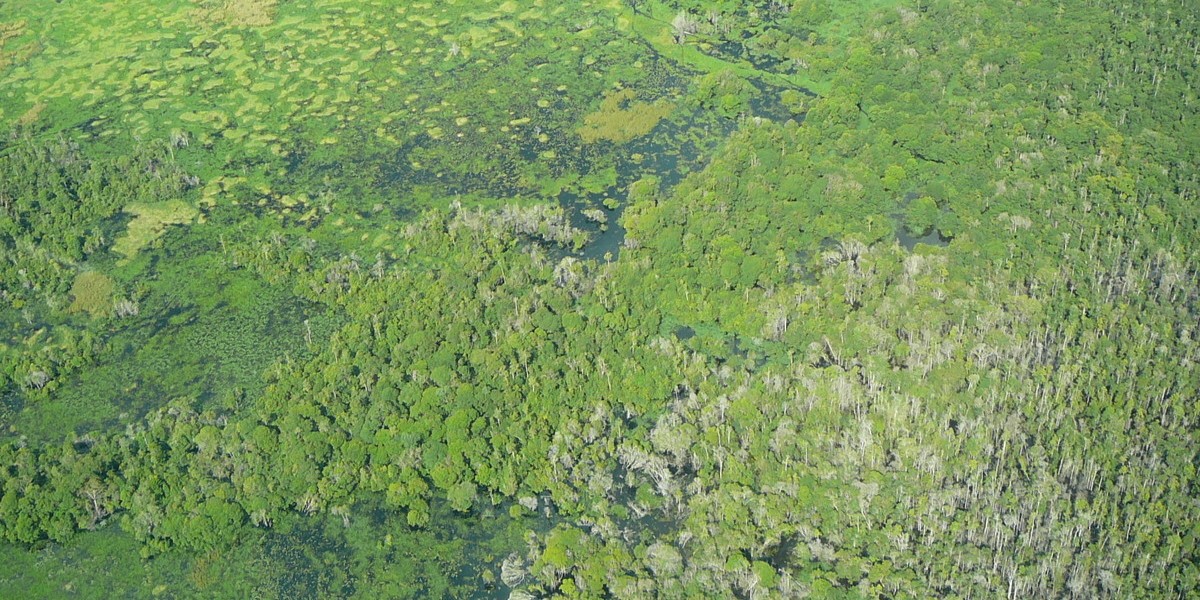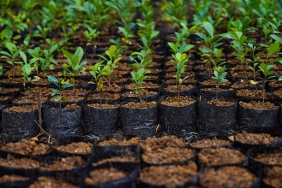BOOK LAUNCH AND DISCUSSION “PROTECTING OUR FORESTS: PROS-CONS OF MORATORIUM ON FORESTS AND PEATLANDS’ POLICY”
Special Staff to the President for Climate Change, Agus Purnomo (Pungki) launches a book titled ‘Protecting Our Forests: Pro-Cons of Moratorium on Forests and Peatlands’ Policy’. The 130-page is written to records the process of development and issuance of Presidential Instruction Number 10/ 2011 on suspension on issuing new permit on primary forest and peatland, which raises pros and cons from various parties within government agencies, conservationists as well as businesses. This book tells about the process of discussions on the REDD+ cooperation between Indonesia and Norway that has resulted in a commitment of 1 billion US dollars, including the policy making process and managing different expectations towards the moratorium policy.
Demands for the government to issue a implement a moratorium on forests have been voiced by environmental NGOs since 20 years ago, when large-scale logging occurred through the provision of logging concessions of production forest (HPH) to individuals or institutions who rendered services to the country under the government of President Soeharto’s era.
The Presidential Instruction is a first step of the government’s policy in responding to various parties for the need to manage Indonesia’s forests in an effective, transparent and accountable manner. President Susilo Bambang Yudhoyono (SBY) is the first Indonesian President to take the bold action to issue a policy to suspend the issuance of new licenses on primary forests and peatlands since Indonesia’s independence in 1945. “WWF Indonesia appreciates this Presidential Instruction as a first step towards improving governance on the forestry sector. This moratorium policy also can be seen as one of the basic components for Indonesia to implement low carbon development,” explained Nazir Foead, WWF Indonesia Conservation Director.
The Presidential Instruction has caused various reactions to this day, from support, optimism, pessimism to rejection. It has also raised expectations that with one or two Presidential regulations, the government will have a ‘silver bullet’ to solve all forestry problems.
The book also records the emotions and criticisms toward REDD+. REDD+ cannot be expected to be a silver bullet to solve all forestry problems and carbon emissions from deforestation and forest degradation if the funding can only be used for conducting studies, planning or making regulations. Many stakeholders expect to receive “money falling from the sky” by expanding forest conservation areas. Whereas REDD+ international negotiations at United Nations Framework Convention on Climate Change (UNFCCC) are still far from the operationalization stage, particularly on the additional elements of REDD, such as biodiversity conservation, sustainable forest management and carbon stock enhancement.
During President SBY’s era, many reform has been made in the forestry sector, including the development of a legal framework to implement REDD+ such as Forestry Ministerial regulations about licensing, testing guidelines and policies related to benefit sharing with stakeholders.
Regardless of the pros and cons, the public and stakeholders agree to support this Presidential moratorium. Paramadina University Rector, Anies Baswedan, said that in the past, the environment is often regarded as the responsibility of governments and corporations. ""Now the environment is everyone's responsibility,"" he said. Meanwhile Miss Indonesia 2005 and environmental activist, Nadine Chandrawinata, said ""the greatness of a country is seen from the way we appreciate and preserve the environment.”
""This book provides an understanding of the background why Indonesia chose the forest and peatland moratorium policy, an 'entry point' for establishing 'pro-environment' policies. Hence, this policy not only relates to carbon credit issues, and should be seen as an opportunity for Indonesia to obtain co-benefits from other areas such as improving governance, spatial planning, institutional frameworks, and community welfare, “said Wahjudi Wardojo, Senior Advisor for International Forest Carbon Policy, TNC Indonesia Program.
This book is published with the support of the Presidential Secretariat, Cabinet Secretariat and the Ministry of Forestry. Those who have supported to improve the English version of the book are Ministry of Environment and Government of Japan (JICA), and to launch the book are TNC Indonesia Program and WWF Indonesia.
The Nature Conservancy
The Nature Conservancy is a leading conservation organization working in all 50 states in the United States and in more than 30 countries around the world to protect the lands and waters upon which all life depends. In Indonesia, the organization has been working in conservation partnerships for 20 years, advancing the protection and sustainable use of forest and marine resources for the benefit of people and nature. For more information please visit www.nature.or.id or www.nature.org.
WWF-Indonesia
WWF is an independent global conservation organization, established in 1961 in Switzerland, with almost 5 million supporters and networks in more than 100 countries. WWF has been present in Indonesia since 1962 for one-horned rhinoceros project in Ujung Kulon, became a foundation in 1998 and present in more than 25 working areas in 17 provinces. WWF-Indonesia’s mission is to save biodiversity and reduce the ecology impacts from human activities through: promoting strong conservation ethics, knowledge and conservation efforts in Indonesian people; facilitating multi-stakeholders efforts in biodiversity protection and ecological process at the eco-regional scale; policy advocacy, law enforcement to support conservation; and encouraging conservation for human welfare through sustainable utilization of natural resources. For further information, visit www.wwf.or.id or www.panda.org





